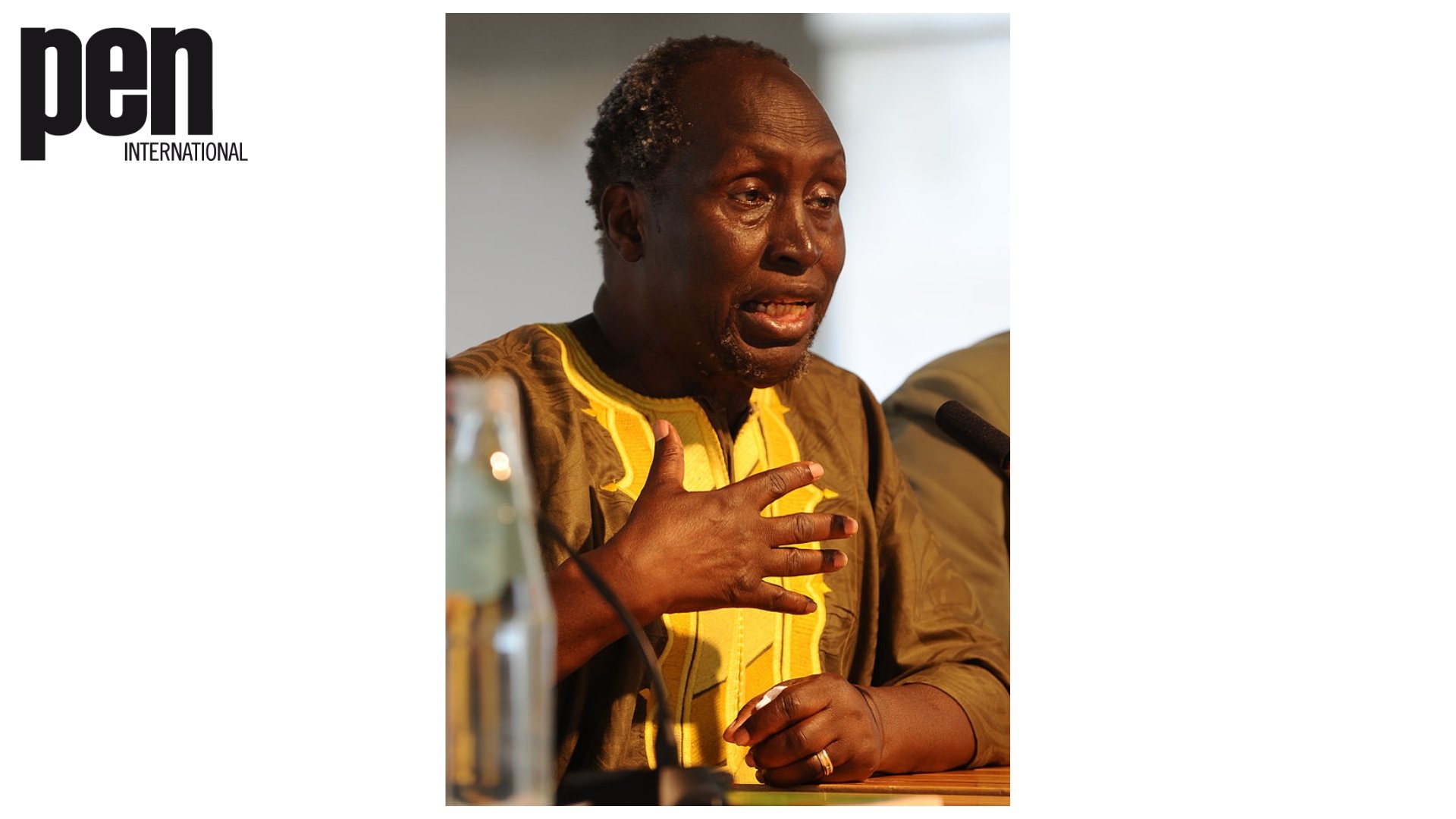PEN International mourns the passing of its Vice President, acclaimed writer and many times Nobel Literature Prize nominee Ngũgĩ wa Thiong’o
Image credit: Niccolò Caranti, CC BY-SA 3.0
“When I asked Ngũgĩ to speak at PEN’s Writers in Prison Committee meeting, he agreed instantly: “PEN supported me in prison—I know how vital that is.” Later, smiling at our report’s Kikuyu prologue, he said, “I can’t stop looking at it.” A true friend of PEN, he will be deeply missed”. Carles Torner, PEN International Vice President
29 May 2025: PEN International mourns the passing of its Vice President Ngũgĩ wa Thiong’o, a towering figure of world literature whose life and work reshaped the global literary landscape.
Ngũgĩ wa Thiong’o was more than a writer; he was a revolutionary voice who challenged the dominance of colonial languages, dismantled literary hierarchies, and advocated for linguistic rights and the centrality of African languages and thought.
Born in Kenya, Ngũgĩ wa Thiong’o grew up witnessing firsthand the brutality of oppression and the resilience of resistance under British colonial rule, which became the foundation of his writings. His novels, essays and plays openly criticised power and inequality, while also celebrating the strength of communities, the richness of African cultures, and the struggles for liberation.
Ngũgĩ wa Thiong’o chose to write in Gikuyu, a Bantu language spoken by the Gĩkũyũ (Agĩkũyũ) of Kenya, pioneering calls for attention to the cultural violence of silencing indigenous voices through the imposition of colonial tongues, an act that cost him freedom, safety, and his place in his homeland. He was detained without trial, exiled, and targeted by violence.
Despite being persecuted, he never abandoned his commitment to cultural freedom and linguistic rights, which turned him into a beacon for writers not only in Africa but across the world. For PEN International, he was not only a Vice President but a moral compass, a relentless advocate for free expression, peaceful, creative resistance, and the right of every people to tell their own stories in their own voices. He will remain an example for writers and activists to come.
His notable works include: Weep Not, Child (1964); The River Between (1965); A Grain of Wheat (1967); Petals of Blood (1977); Devil on the Cross (1980); Decolonising the Mind (1986); Matigari ma Njiruungi (1986); Mũrogi wa Kagogo (Wizard of the Crow, 2006); and The Language of Languages (2023) – among others.
As we grieve his passing, we celebrate his legacy and life of service to truth and justice. PEN International sends its deepest condolences to his family, friends, readers, and all who have been touched by his work.
Note to Editors:
For further information and media queries, please contact Sabrina Tucci, PEN International Communications and Campaigns Manager, email: [email protected]

